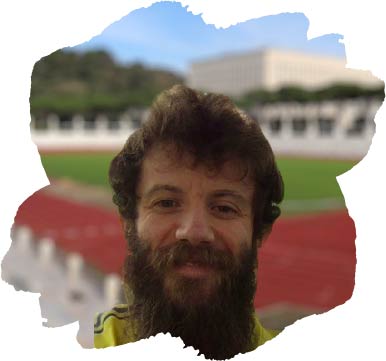
The importance of monitoring work and power in sport
With new (and old) technologies, methodologies and approaches both work and power can be computed or estimated nowadays also in sport activities. Metabolic and mechanical work (and power) are not synonyms, although they can be related and, under some specific assumptions, they can be inferred by knowing the relevant counterpart. These parameters can give useful insights on the metabolic and mechanical demand of different disciplines, and on the comprehension of basic mechanisms that underline different activities. Methodologies for obtaining both work and power, common pitfalls, and a comparison among sport activities will be presented with the aim to introduce the audience, and to increase the audience knowledge on the topic and their critical sense.
Gaspare Pavei - Biosketch
Gaspare Pavei received his BSc (2009) in Sport Science at the University of Verona, MSc (2011) in Sport Science and PhD (2014) in Physiology at the University of Milan. Since 2011 he is involved in the research activity of the Laboratory of Physiomechanics of Locomotion at the Department of Pathophysiology and Transplantation of the University of Milan, where he is currently a Research Fellow. He is currently involved in the Italian Athletics Federation (FIDAL) in testing and biomechanics activities. His research concerns the bioenergetics and biomechanics of human locomotion in various conditions (e.g. gradient, acceleration, low gravity) with a focus on energy-saving mechanism and efficiency.